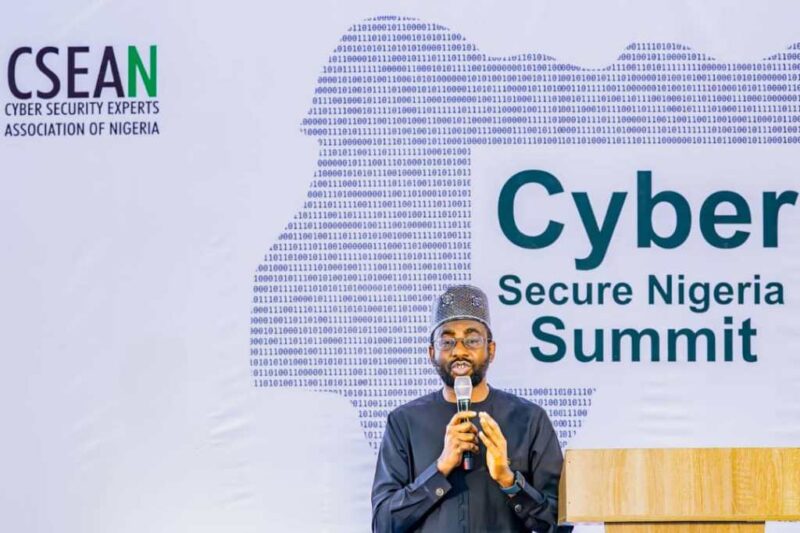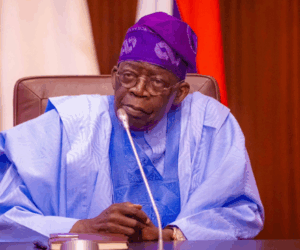When Kashifu Inuwa Abdullahi, the director general of the National Information Technology Development Agency (NITDA), took the stage at the Cyber Nigeria Summit, the room of experts, policymakers, and innovators leaned in with intent.
His keynote titled “Securing Digital Economy: Strengthening Infrastructure and Harnessing the Power of Artificial Intelligence”, was more than a technical presentation; it was a call to secure Nigeria’s digital destiny.
Inuwa began with a sobering truth: as Nigeria’s digital economy accelerates, so do the threats that accompany it. “Cybercrime now costs the world over $10 trillion annually, making it the most lucrative form of crime globally,” he said, citing the World Economic Forum’s ranking of cybersecurity among the top five global threats. “Our strategies must evolve beyond physical protection.”
For Nigeria, the stakes are high. The ICT sector contributes about 17 percent to the national GDP, while the broader service sector, powered largely by digital technologies, accounts for nearly 58 percent of economic output. “The digital economy is the heartbeat of our development agenda,” Inuwa noted. “Every sector now runs on technology, from banking and education to healthcare and transportation.”
Yet, with Artificial Intelligence (AI) transforming how we live and work, the DG warned that it has also reshaped the cybersecurity landscape. “AI enhances productivity and innovation, but it equally empowers cybercriminals with precision tools to execute sophisticated attacks,” he explained.
To stay ahead, Inuwa stressed that security must be embedded into digital infrastructure from the foundation. “Digital infrastructure now goes beyond servers and networks, it includes utilities, telecommunications, and even autonomous vehicles. If a hacker gains access to an autonomous car, the consequences could be disastrous,” he said.
He outlined three core components of AI systems, data, compute power, and algorithms, all of which must be protected to maintain trust and resilience. “If any of these are compromised, the entire system becomes vulnerable,” he cautioned.
But even as technology evolves, human behavior remains the weakest link. “Globally, human error accounts for 90 to 95 percent of cyber incidents,” Inuwa said. “Cybercriminals exploit human weakness because it’s easier to manipulate behavior than to break through advanced systems.”
To address this, NITDA’s cybersecurity strategy rests on four strategic pillars:
- Governance: anchored by the Cybercrime (Prohibition, Prevention, etc.) Act, now updated to reflect emerging threats. A Presidential Executive Order has also designated critical digital information infrastructure as national assets, “a milestone that allows our cyberspace to be recognised and protected as a national highway.”
- Capacity Building: tackling the global shortage of cybersecurity talent, currently 4.4 million professionals short worldwide, including 140,000 in Nigeria. Through the 3 Million Tech Talent (3MTT) programme and the National Digital Literacy Framework (NDLF), NITDA aims to empower young Nigerians with digital and cybersecurity skills, targeting 95 percent digital literacy by 2030.
- Incident Management: led by the National Cybersecurity Coordination Centre (NCCC) under the Office of the National Security Adviser (ONSA), with sectoral CERTs across finance, communications, and law enforcement ensuring rapid and unified responses.
- Collaboration: fostering partnerships with the African Union, Smart Africa, international CERTs, and global tech giants to enhance collective defense mechanisms.
He further revealed that NITDA, in partnership with ONSA, is developing a National Cybersecurity Architecture to promote accountability, information sharing, and unified national defense.
Inuwa closed with a message to all Nigerians, one rooted in personal responsibility.
“Cybersecurity is not just about technology; it’s about people. Every Nigerian has a role to play. Use strong passwords, enable multi-factor authentication, avoid phishing scams, and report cyber incidents promptly. Together, we can build a secure and digitally resilient nation.”
By investing in infrastructure, human capital, and innovation, NITDA is shaping a future where Nigeria’s digital economy thrives, securely and sustainably.








